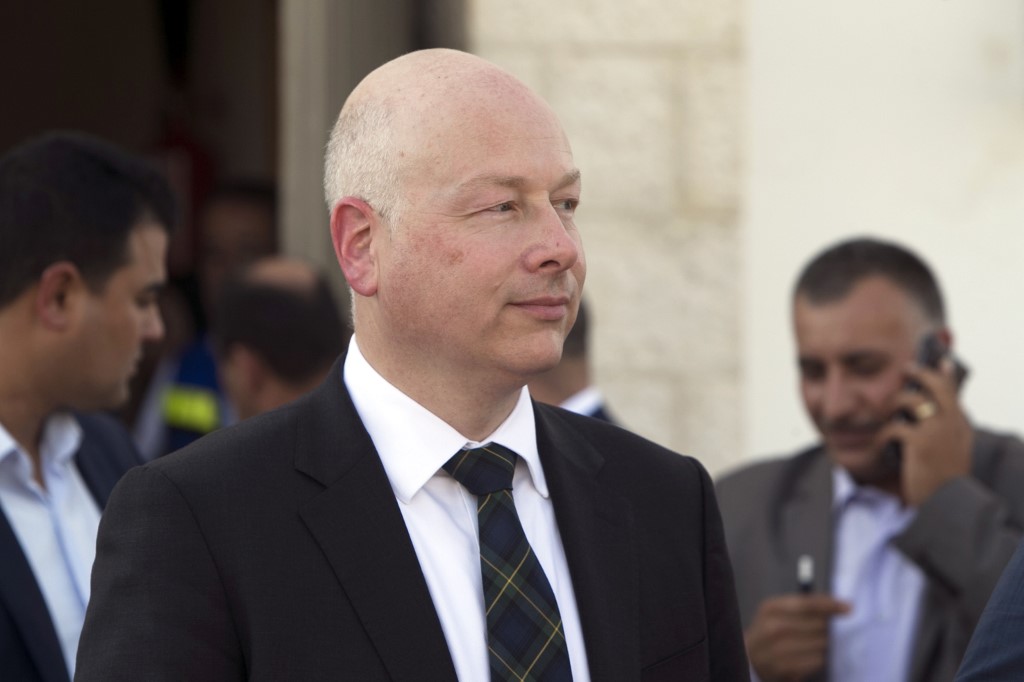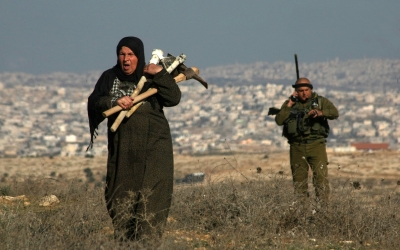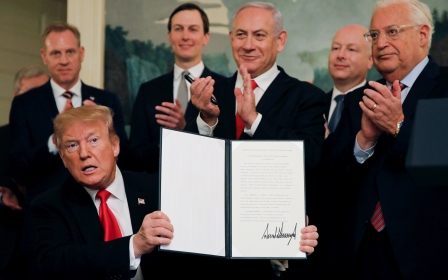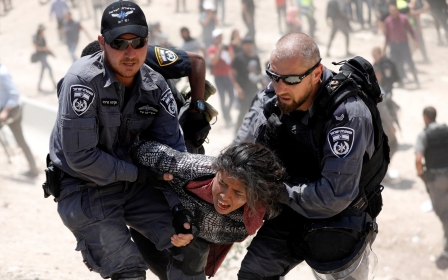Canada's move to label settlement wines is a positive step. Much more is needed
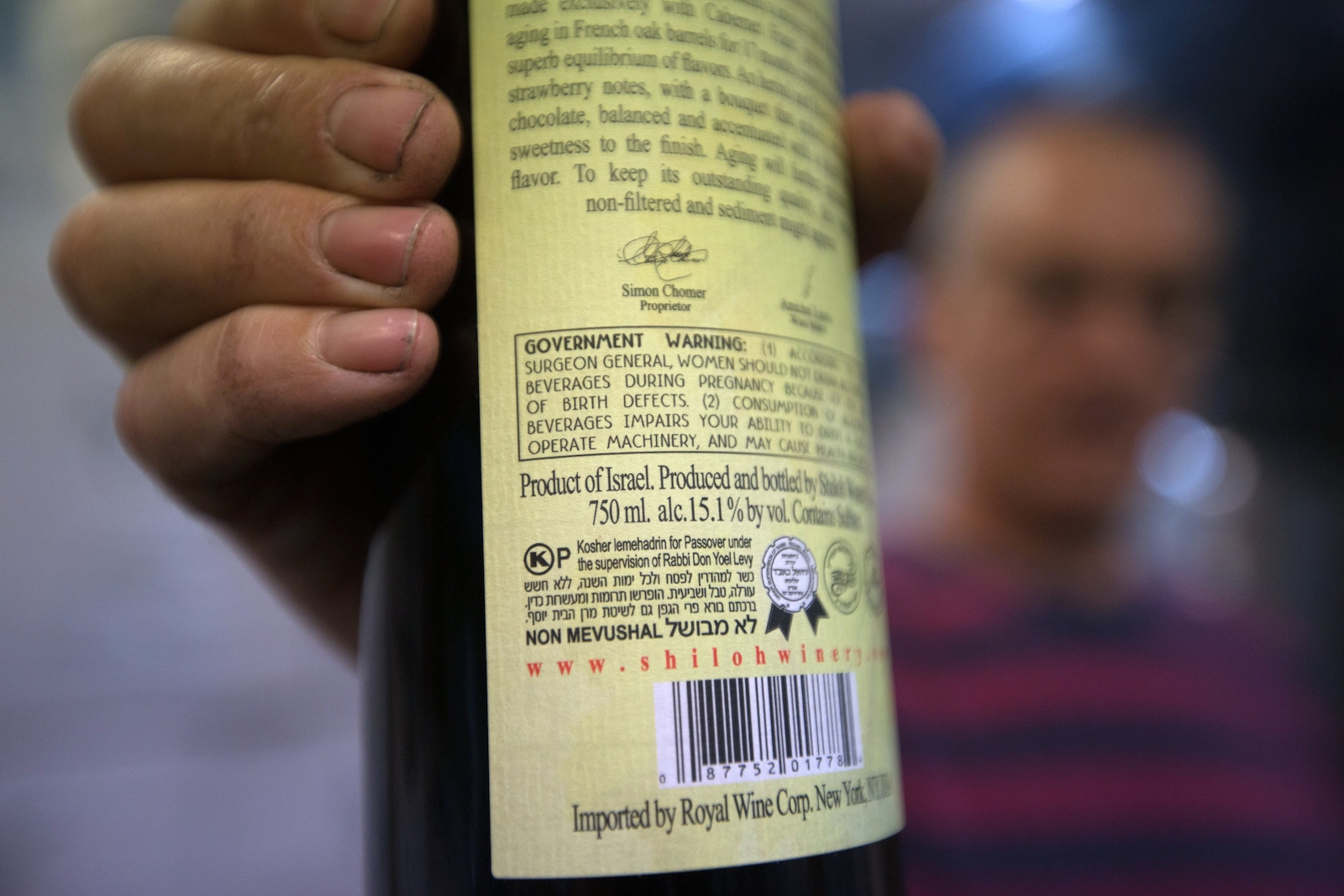
In what is one of their darkest hours, Palestinians are looking for any move by the international community in support of their quest for freedom, justice and equality.
Every time a member of the Trump administration opens his mouth, their collective jaws drop, as long-held understandings are brushed aside, while Israel’s demands are supported and implemented with astonishing speed.
This is why Palestinians saw the recent Canadian federal court decision on labelling West Bank wines as “one small step for man, one giant leap for mankind”.
Yes, I exaggerate, but the court’s ruling - which determined that labelling a wine from the West Bank as a “Product of Israel” is misleading and deceptive - is significant because it upholds international law on the illegal occupation of Palestine.
Denying occupation
New MEE newsletter: Jerusalem Dispatch
Sign up to get the latest insights and analysis on Israel-Palestine, alongside Turkey Unpacked and other MEE newsletters
This is exactly what the US administration has been arguing against. In 2017, President Donald Trump recognised Jerusalem as the capital of Israel; more recently, he recognised Israel’s annexation of the Syrian Golan Heights, and was rewarded with a promise to name an illegal settlement after him.
The US ambassador to Israel, David Friedman, has denied the occupation and had the US State Department drop the term in its annual report on human rights. Both Friedman and Jason Greenblatt, Trump’s Middle East envoy, support the settlement enterprise and prefer to refer to the West Bank by its biblical name, Judea and Samaria.
They seek to appear to be principled, but hide when Israel builds more settlements or demolishes Palestinian homes
Greenblatt recently expressed his preference for calling settlements “neighbourhoods and cities,” describing the word “settlements” as “pejorative”. He also rejected the term “occupied” to describe the West Bank, saying: “I would argue that the land is disputed … Calling it occupied territory does not help resolve the conflict.”
Friedman recently said Israel had the right to retain “some, but unlikely all, of the West Bank”. Speaking on CNN, he dismissed a state for Palestinians, noting: “We believe in Palestinian autonomy, we believe in civilian self-governance, we believe that autonomy should be extended up until the point where it interferes with Israeli security.”
This position is contrary to international law and international consensus, but to this US administration it is the US and then the Israeli view that matter.
Israel a victim?
Greenblatt has gone further in dismissing the importance of international law to solving the Palestinian-Israeli conflict. In a recent speech to the UN Security Council, which sparked pushback from other members, he claimed that peace could not be achieved “by fiat of international law or by these heavily wordsmithed, unclear [UN] resolutions”.
Greenblatt is on record as saying “Israel is actually more the victim than the party that’s responsible” for the Middle East conflict. In his eyes, while Israel is not “perfect,” he hasn’t “found anything to criticise that goes over the line” when it comes to the Israeli government.
It was good to see some members of the UN Security Council push back against Greenblatt’s disregard for international law. “For us, international law is not menu a la carte,” Germany’s UN ambassador, Christoph Heusgen, told the council. “There are other instances where US representatives here insist on international law, insist on the implementation of UN Security Council resolutions, for instance on North Korea.”
Had this stance been translated into a real effort to compel Israel to implement Security Council resolutions, the conflict might have been resolved by now. Instead, other countries sit back while Israel, protected and now egged on by the US, continues to disregard resolutions and international law.
If members of the Security Council were serious, they would cut all ties and impose sanctions on Israel until it complied. Instead, they play a game of hide-and-seek. They seek to appear to be principled, but hide when Israel builds more settlements or demolishes Palestinian homes, bringing unbelievable suffering upon those affected.
Banning settlement goods
The recent decision in Canada is a small step - a means of pressuring Israel, which all countries that believe in international law should follow. Still, this is only about product labelling, rather than the necessary ban on products from illegal settlements, which most countries can’t bring themselves to adopt.
In June, the European Court of Justice issued a statement confirming the requirement under EU law for products originating in the occupied territories to be clearly labelled as such. A total ban on the importation of settlement goods into Ireland, meanwhile, is nearing the final stages of becoming law.
While Palestinians would welcome “one giant leap for mankind” in support of their quest for freedom, justice and equality, cumulative smaller steps serve to remind Israel and its US backers that rights and international law are vital.
The US administration needs reminding that today’s bible, which ensures world order, is international law - not the one Friedman, Greenblatt et al reference in order to deliver Greater Israel.
For Canada’s part in insisting on labelling settlement wines, cheers!
The views expressed in this article belong to the author and do not necessarily reflect the editorial policy of Middle East Eye.
Middle East Eye delivers independent and unrivalled coverage and analysis of the Middle East, North Africa and beyond. To learn more about republishing this content and the associated fees, please fill out this form. More about MEE can be found here.



